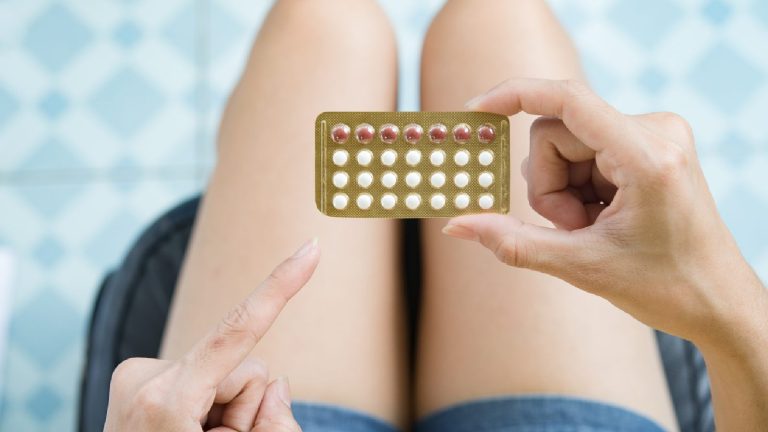
There are numerous blood management strategies. They will help to forestall being pregnant, but in addition have some unwanted side effects. As one of many unwanted side effects, contraception might trigger blood clots.
When you have an lively intercourse life and don’t desire a child anytime quickly, it will likely be pure so that you can use contraception strategies. Popping contraception drugs or utilizing a barrier technique like condoms and diaphragms will help forestall being pregnant. Utilizing contraception strategies may include unwanted side effects like breast tenderness, complications, bloating, and stomach cramps, in addition to improve the danger of blood clots. Whereas contraception inflicting blood clots will not be a quite common facet impact, one can’t rule out the probabilities. Nevertheless, not all contraception strategies might result in blood clots.
What are the contraception strategies out there?
There are numerous contraception strategies, which may be broadly categorised into the next varieties:
1. Hormonal strategies
These embody contraception drugs, patches, vaginal rings, injections, and hormonal intrauterine gadget or IUD. “They work by altering hormone ranges to forestall ovulation, thicken cervical mucus, and skinny the uterine lining,” explains gynaecologist and obstetrician Dr Vinatha Puli. There are additionally copper IUDs that forestall sperm from fertilising the egg with out utilizing hormones.

2. Barrier strategies
These embody male in addition to feminine condoms, cervical caps, diaphragms, and contraceptive sponges. The sort of contraceptive technique bodily blocks sperm from reaching the egg to forestall being pregnant.
3. Everlasting strategies
These embody surgical procedures like tubal ligation, generally generally known as “getting your tubes tied”, for girls, and vasectomy for males. “These strategies are thought-about everlasting and are often irreversible,” says the knowledgeable.
You may additionally like


4. Emergency contraception
These strategies embody emergency contraceptive drugs or morning-after drugs, and copper IUDs. They’re meant for utilizing after having unprotected intercourse to forestall being pregnant.
Does contraception trigger blood clots?
Blood clots are clumps of blood that seem like gel. They get shaped after somebody will get a reduce or an harm. The clots, which get shaped inside an injured blood vessel, assist cease the bleeding and heal the physique. However a few of them attain the veins and don’t dissolve naturally. Deep vein thrombosis or DVT is a blood clot in a vein, often in an individual’s leg, and may be harmful, as per the UK’s Nationwide Well being Service.
A clot within the vessels can take blood into an individual’s lungs, generally known as a pulmonary embolism. It may be deadly as it could possibly cease blood from attending to the lungs. The incidence of pulmonary embolism ranges between 39 and 115 per 100,000 inhabitants in a 12 months, in line with a analysis printed in StatPearls in February 2024.
A blood clot impacts about 1 in 1,000 individuals who use mixed hormonal contraception, which accommodates oestrogen and progestogen, as per the NHS. “Hormonal contraception strategies, particularly those which have estrogen, are related to an elevated danger of blood clots,” says Dr Puli. These embody:
- Mixture contraception drugs, which have each the progestin and estrogen hormones.
- Contraceptive patches, which launch estrogen and progestin by means of the pores and skin.
- Vaginal rings such because the NuvaRing, which releases a mixture of estrogen and progestin.
Contraception strategies with solely progestin don’t improve the danger of blood clots, as per analysis printed within the Haematologica journal in 2016. “Estrogen will increase the degrees of sure proteins within the blood that promote clotting,” says Dr Puli. Hormonal contraception also can result in adjustments within the blood vessels’ lining, which makes it simpler for blood clots to get shaped.
What are the indicators of contraception inflicting blood clots?
Blood clots may be life-threatening, so it’s essential to recognise the indicators early. Widespread indicators of contraception inflicting blood clots are:
- Swelling often in a single leg, which can additionally really feel heat or tender.
- Sudden or extreme ache within the leg, typically within the calf.
- Crimson or discoloured pores and skin, notably on the affected leg.
- Sudden or unexplained problem in respiration.
- Sharp ache within the chest which will worsen whereas respiration deeply.
- Unexplained coughing, generally with blood.
- Feeling lightheaded or fainting.

Methods to forestall blood clots because of contraception?
To scale back the danger of blood clots whereas utilizing hormonal contraception, do the next:
- Ask your physician about contraception strategies with decrease estrogen ranges or progestin-only choices.
- Keep a wholesome weight, and keep bodily lively to scale back total clotting danger.
- Drink loads of water to maintain your blood flowing easily within the physique.
- When you have a household historical past of blood clots, or different danger components equivalent to weight problems, focus on them along with your physician.
What to do if contraception causes blood clots?
In the event you suspect that you’ve got a blood clot because of contraception, go to a hospital should you expertise any signs of blood clot. Additionally, cease utilizing the hormonal contraception. “A physician provides you with anticoagulant or blood-thinning medicines to assist forestall the clot from rising and scale back the danger of latest ones forming,” says the knowledgeable.
Contraception strategies will help to forestall undesirable being pregnant, however there are unwanted side effects like blood clots. Know the dangers and indicators of blood clots whereas utilizing hormonal contraception, and focus on your private danger components along with your physician earlier than beginning any contraception technique.